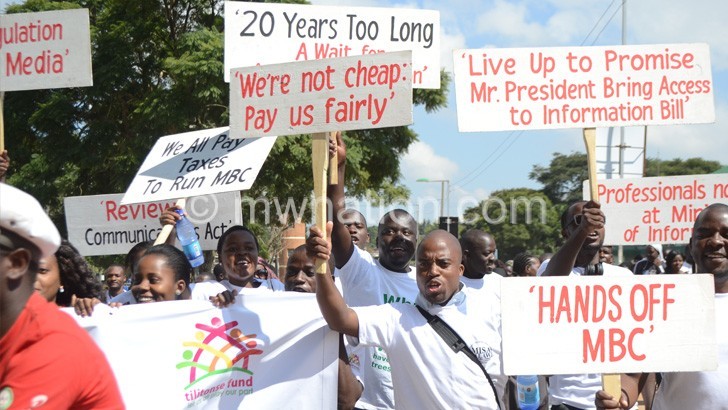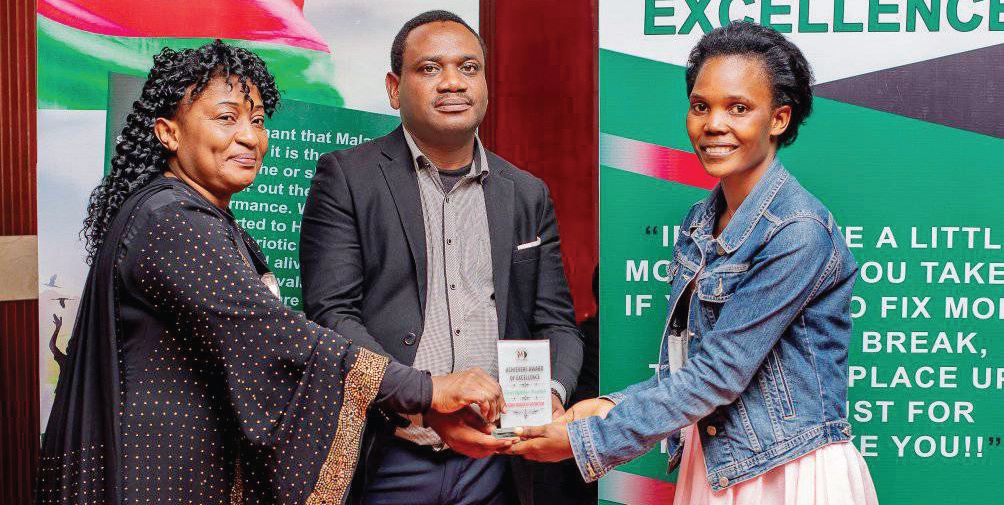One Tuesday morning, social media went into a frenzy following the detention of journalist Gregory Gondwe in Blantyre.
The police pounced on the investigative journalist in an attempt to force him to reveal apparent source of information for a story he published with the Platform for Investigative Journalism (PIJ) Malawi.
Journalists are supposed to report freely
The story touched on two decisions that Attorney General Thabo Chakaka Nyirenda had made in connection with payments to entities owned by United Kingdom-based businessperson Zuneth Sattar.
Before his arrest, Gondwe suspects the police had mounted surveillance on him to eavesdrop on his mobile phone communication.
“The sad part is that they started by harassing my sister,” recalls Gondwe, who is PIJ Malawi managing director.
“They checked my call logs and decided to contact my younger sister who I had spoken to on the phone the previous day. She was on her way from Lilongwe to Salima where she stays when the police called and asked her to abandon her journey and drop off along the road,” he explains.
Gondwe says the police followed her right where she dropped off and started asking her questions about him.
He said: “They, in fact, lied to her that they wanted me to help them with information about a suspect. I called them later and they still lied in my face that they wanted me to help them catch a suspect.
“But when they came to our offices the following day, they first refused to enter our offices, preferring to interview me in their Land Cruiser vehicle where they showed me a court sanctioned search warrant before going ahead confiscating my IT gadgets then descended on our office.”
Gondwe was then taken to regional police offices at Chichiri where they detained him for hours.
“I was released later in the evening in the presence of my lawyer, but still clung onto my IT gadgets. They eventually surrendered the gadgets back the following day before telling me that their investigations on the matter were still ongoing,” he says.
Gondwe’s case is just an example of several others bordering on media freedom and freedom of expression violations.
In the past, journalists Mabvuto Banda and the late Raphael Tenthani were arrested for broadcasting and publishing a report that the then president, Bingu wa Mutharika, could not sleep at Kamuzu Palace in Lilongwe because he was seeing and was afraid of ghosts. The two were charged under the Protected Flag, Emblems and Names Act (1967).
Others who were arrested and charged using the same law include politicians Bon Kalindo and late Gwanda Chakuamba and the private citizen Manice Hale.
Figures tallied by the Media Institute of Southern Africa (Misa) Malawi indicate that since January last year, Malawi has registered 10 media violations which involved the Malawi Police Service. Just like in 2020, noone has been held accountable for these crimes, according to Misa Malawi chairperson Teresa Ndanga.
On freedom of expression, the figures show that six citizens have been arrested within the same period “after their views on social media were deemed to be insults to the President”.
Research indicates that Malawi uses archaic and draconian laws that stifle press freedom, freedom of expression and the right to access to information.
Some of these laws include The Official Secrets Act (1966), Printed Publications Act (1947), Censorship and Control of Entertainment Act (1968) and Protected Flag, Emblems and Names Act (1967).
Others are The Mines and Minerals Act (2019), Oaths of Secrecy of Public Officials, Electronic Transaction and Cyber Security Act (2014), Preservation of Public Security Act, The Penal Code and the Communications Act.
A study titled ‘Assessment of the Legal Barriers to Access to Information and Freedom of Expression in Malawi (2021), under the consortium of Oxfam, Youth and Society and Development Communication Trust says these laws reflect the colonial period and the autocratic one-party regime that was void of human rights, including access to information.
Author of the paper, lawyer Wesley Mwafulirwa says such laws need to be revised or repealed to align them with the democratised Constitution.
He said: “For instance, Section 4 of the Official Secrets Act prohibits every person from disclosing a wide range of information, including any official information which one has accessed by virtue of the position he or she holds or has held under the government.
“The aforementioned section defeats the purpose of Malawi’s Access to Information Act whose main objective is to improve the flow of information from the government to citizens and ensure that they [citizens] access the information held by the government.”
Mwafulirwa says the Preservation of Public Security Act, which was enacted prior to the 1994 democratic Constitution, empowers the minister to make regulations which, among other things, prohibit the publication and dissemination of any matter that appears to be prejudicial to public security.
Besides the Protected Flag, Emblems and Names Act, which has provisions also known as ‘insult laws’, makes it an offence to publish anything liable to insult, ridicule or show disrespect to the president, the Malawian national flag and the national coat of arms, he says.
“This is clearly not in line with the 1994 Constitution and it can be used as a tool for restriction of the right to freedom of expression,” says Mwafulirwa.
Another lawyer, Mayamiko Madula, who researched on ‘insult laws’, says there is divided opinion within the legal fraternity on the interface between insult laws and freedom of expression.
He says some scholars hold that insult law is not only anathema to freedom of expression, but that it is also an affront to holding the president to account.
Madula says other scholars argue that insult laws are pivotal in safeguarding the integrity of the head of State and ensuring social order.
“But my research established that insult laws spelt out in Section 4 of Protected Flags, Emblems and Names Act are a gross violation to the constitutional guarantees of freedom of expression and media freedom,” he says.
Attorney General Thabo Chakaka-Nyirenda pledged during a recent debate organised by Misa that these archaic laws will be repealed during the next sitting of Parliament.
However, he said not everything under the Protected Flags, Emblems and Names Act will go, saying some laws could be old but still good and others new but bad.
In an interview, Nyirenda said they have a draft bill on the sedition laws which will be ready for tabling in the next sitting of Parliament.
“We now want to start consultations with people to make comments and get expert opinion on the same in compliance with the rule of law,” he said.
The post Legal barriers to press freedom, expression appeared first on The Nation Online.
 Moni Malawi
Moni Malawi 

